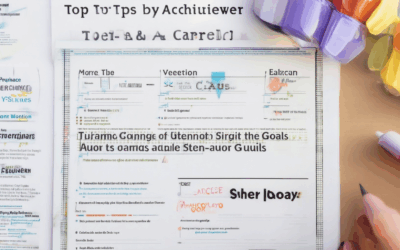In today’s fast-paced world, achieving success isn’t just about talent or hard work—it’s also about mental resilience. Whether you’re navigating the pressures of a high-stakes career, overcoming personal challenges, or simply striving to lead a fulfilling life, developing mental resilience is a critical skill that can empower you to thrive under any circumstances. This comprehensive guide dives deep into the core components of mental resilience, offering insights, exercises, and strategies to help you build and maintain this vital trait. From understanding the psychological foundations of resilience to exploring proven methods for cultivating it, this article equips you with the knowledge needed to embrace challenges and achieve long-term success. By examining the key principles, tools, and practices associated with mental resilience, you’ll gain a deeper understanding of what it means to stay strong in the face of adversity and how to apply these lessons to your own life.

The 4 Pillars of Mental Resilience
Mental resilience is the ability to navigate life’s challenges with strength and recover from setbacks. It is built on four key pillars that support emotional well-being and personal growth. Here’s a breakdown of each:
- Positive Mindset : Cultivating a positive outlook helps individuals see opportunities amidst challenges. By focusing on solutions rather than problems, a positive mindset fosters hope and motivation.
- Problem-Solving Skills : Developing effective coping mechanisms allows individuals to address issues methodically. This skill involves critical thinking and creativity to find viable solutions.
- Acceptance of Failure : Embracing failure as a part of growth helps individuals learn from their experiences. Viewing setbacks as stepping stones rather than roadblocks reduces feelings of helplessness.
- Self-Compassion : Treating oneself kindly during difficult times is crucial. Self-compassion involves recognizing that no one is perfect and that it’s okay to seek support when needed.
By mastering these pillars, individuals can build mental resilience, enabling them to thrive despite adversity. For further exploration of these concepts, visit 7del.net to discover actionable strategies for personal growth.
What Are the 7 Cs of Resilience?
Resilience is the ability to adapt and recover from challenges, and it plays a vital role in personal and professional success. Understanding the 7 Cs of resilience can help individuals develop stronger coping strategies and emotional intelligence. Here’s a breakdown of each component:
- Curiosity: The desire to explore and learn, even in difficult situations, helps build adaptability and problem-solving skills.
- Compassion: Empathy and understanding others’ perspectives foster connections and reduce feelings of isolation during tough times.
- Conviction: A strong sense of purpose and belief in oneself enables perseverance despite obstacles.
- Collaboration: Working effectively with others builds a support network, which is essential for overcoming challenges.
- Creativity: Thinking outside the box generates innovative solutions and keeps your mindset positive.
- Control: Recognizing what you can influence and letting go of what you can’t minimizes stress and enhances well-being.
- Connection: Maintaining healthy relationships strengthens your social support system, which is crucial for resilience.

How to Become Mentally Resilient
Mental resilience is the ability to adapt to life’s challenges with strength and perseverance. It involves developing healthy coping mechanisms, maintaining a positive outlook, and fostering self-awareness. Here’s a comprehensive guide to building mental resilience:
Key Components of Mental Resilience
- Mindset:** Cultivate a growth mindset by viewing challenges as opportunities for learning and personal development.
- Emotional Intelligence:** Develop skills to recognize and manage emotions, allowing you to respond thoughtfully rather than react impulsively.
- Social Support:** Build strong relationships with family, friends, and community members who can offer encouragement and assistance during tough times.
- Goal Setting:** Establish clear, achievable goals to give your efforts direction and purpose.
Building Mental Resilience
Resilience isn’t innate—it’s developed through practice and effort. Here are some strategies to strengthen your mental toughness:
- Practice Gratitude:** Regularly reflect on the positive aspects of your life to foster a sense of thankfulness and positivity.
- Engage in Mindfulness:** Techniques like meditation and deep breathing can help you stay calm and centered during stressful situations.
- Develop Problem-Solving Skills:** Approach challenges systematically by breaking them down into manageable steps and exploring potential solutions.
- Seek Feedback:** Regularly ask for input from trusted individuals who can provide constructive criticism and support your growth.
Maintaining Mental Resilience
Once you’ve built resilience, it’s essential to protect and nurture it. Here are some tips to sustain your progress:
- Stay Connected:** Maintain meaningful connections with others to reduce feelings of isolation and loneliness.
- Take Care of Your Health:** Physical health plays a crucial role in mental well-being. Prioritize sleep, nutrition, and exercise.
- Set Boundaries:** Learn to say no to activities or responsibilities that drain your energy and hinder your ability to thrive.
- Celebrate Progress:** Acknowledge and celebrate your achievements, no matter how small, to reinforce a sense of accomplishment and confidence.
Final Thoughts
Becoming mentally resilient is a journey that takes time and dedication. By embracing challenges, nurturing relationships, and practicing self-care, you can build a foundation for lasting resilience. Remember, every step forward, no matter how small, is a testament to your strength and determination.
For more resources and strategies to enhance your mental well-being, explore our Mental Health section and discover practical tools to navigate life’s ups and downs.

What are the 5 R’s of Resilience?
The 5 R’s of resilience are essential principles that help individuals navigate challenges and grow stronger. These principles foster adaptability, emotional intelligence, and long-term success. Here’s a breakdown of each:
1. Rebound
Resilience begins with the ability to recover quickly from setbacks. Rebound involves bouncing back from failures, viewing challenges as opportunities, and maintaining hope during difficult times. It’s about embracing uncertainty and finding strength in adversity.
2. Reflect
Reflecting allows individuals to gain insight and learn from their experiences. By taking time to analyze what happened, what could have been done differently, and how to improve, people can develop greater self-awareness and decision-making skills. Reflection helps in building emotional intelligence and preventing repetitive mistakes.
3. Reinforce
Reinforcement strengthens beliefs, habits, and behaviors that support resilience. It involves surrounding oneself with positive influences, engaging in activities that boost confidence, and practicing self-care. Reinforcing a growth mindset helps individuals believe in their ability to succeed despite obstacles.
4. Reimagine
Reimagining involves visualizing a brighter future and exploring innovative solutions to problems. It’s about breaking free from limiting beliefs and thinking outside the box. Reimagination fuels creativity and opens doors to new possibilities, helping individuals overcome mental blocks and achieve their goals.
5. Resolve
Resolve is the determination to overcome challenges and persist through difficulties. It’s about setting clear goals, staying committed to them, and maintaining the courage to see things through. Resolve drives individuals to take action, even when faced with uncertainty or fear.
By mastering these five R’s, individuals can build resilience that enables them to thrive in any situation. Whether facing personal challenges or professional setbacks, the 5 R’s provide a roadmap for growth and success.
The Three Cs of Resilience
The three core components of resilience are Critical Thinking, Collaboration, and Communication. These elements work synergistically to help individuals navigate adversity and bounce back from challenges.
- Critical Thinking : This involves analyzing situations, evaluating options, and making informed decisions. It allows individuals to adapt strategies effectively, whether problem-solving or exploring alternative solutions.
- Collaboration : Working with others fosters a support network, sharing responsibilities, and pooling resources. This collective effort reduces the emotional burden and enhances the ability to overcome obstacles.
- Communication : Expressing thoughts and emotions clearly facilitates effective problem-solving and relationship maintenance. Clear communication aids in seeking support and maintaining connections during tough times.
These three Cs collectively enhance resilience by addressing mental, social, and problem-solving capacities, providing a holistic approach to overcoming difficulties.

The 5 Pillars of Resilience
Resilience is a critical trait that enables individuals to navigate challenges, adapt to change, and thrive in difficult situations. It is built on five core pillars, which work synergistically to foster strength and long-term well-being. Below is a breakdown of each pillar:
- Self-Awareness
- Understanding oneself is the foundation of resilience. Self-awareness involves recognizing strengths, weaknesses, emotions, and values. It allows individuals to make informed decisions and respond effectively to life’s challenges.
- Learn more about self-awareness techniques .
-
Mindfulness
- Practicing mindfulness helps individuals stay present and manage stress. By focusing on the here and now, people can better handle anxiety and emotional turmoil, leading to improved mental clarity and emotional balance.
- Explore mindfulness practices .
-
Self-Care
- Prioritizing physical, emotional, and social well-being is essential for resilience. Regular exercise, healthy eating, sufficient sleep, and meaningful connections all contribute to overall vitality and the ability to endure tough times.
- Discover self-care strategies .
-
Positive Relationships
- Strong relationships provide support, encouragement, and motivation during difficult periods. Building and maintaining positive connections with family, friends, and colleagues enhances resilience and emotional stability.
- Learn relationship-building skills .
-
Purpose
- Having a clear sense of purpose gives individuals something to strive toward, even in adversity. Whether it’s a career goal, personal passion, or contribution to society, a strong purpose drives resilience and determination.
By cultivating these five pillars, individuals can develop a robust capacity for resilience, enabling them to overcome obstacles and thrive in life’s challenges. Remember, resilience is not about avoiding difficulties but learning to navigate them with grace and strength.




0 Comments